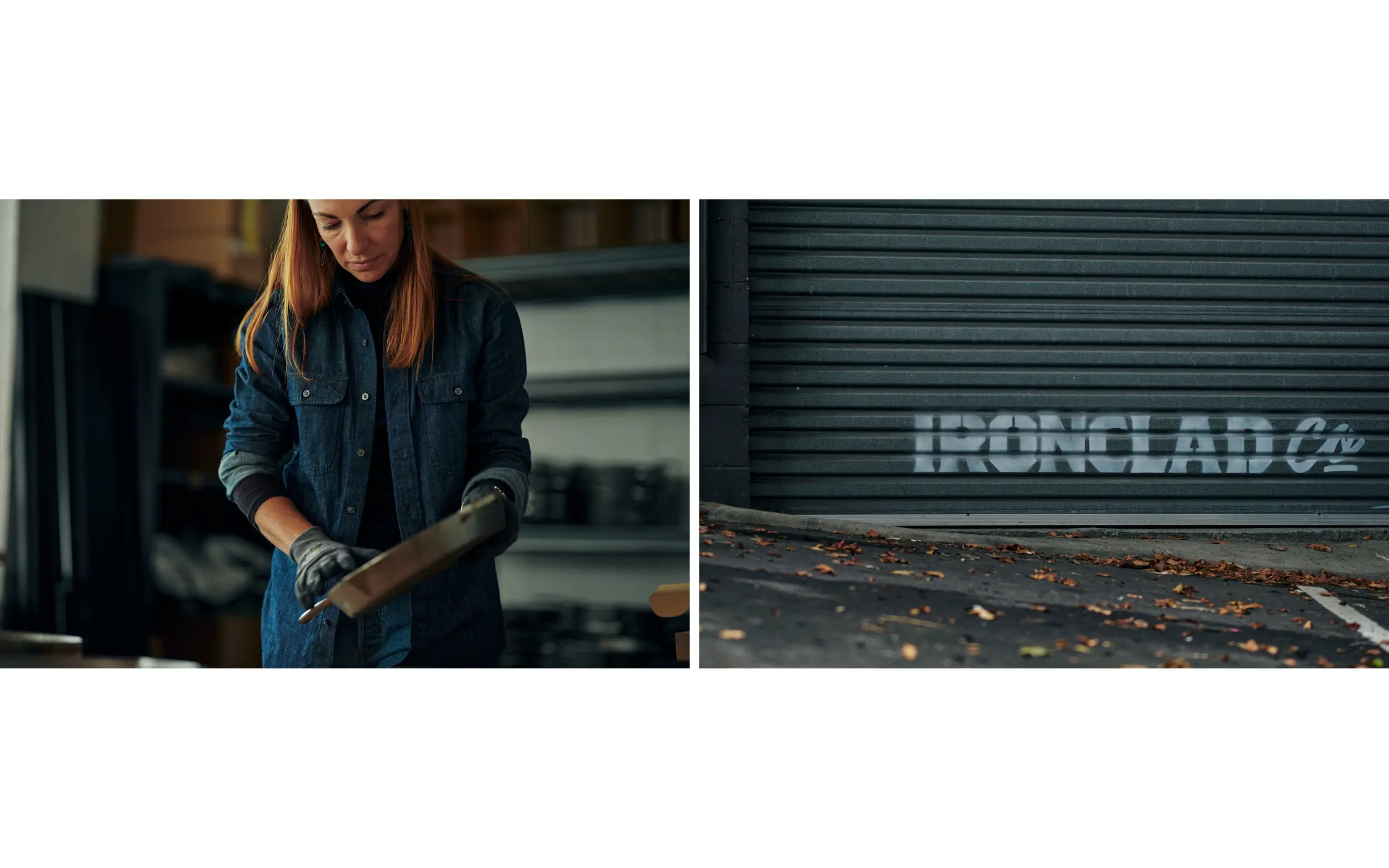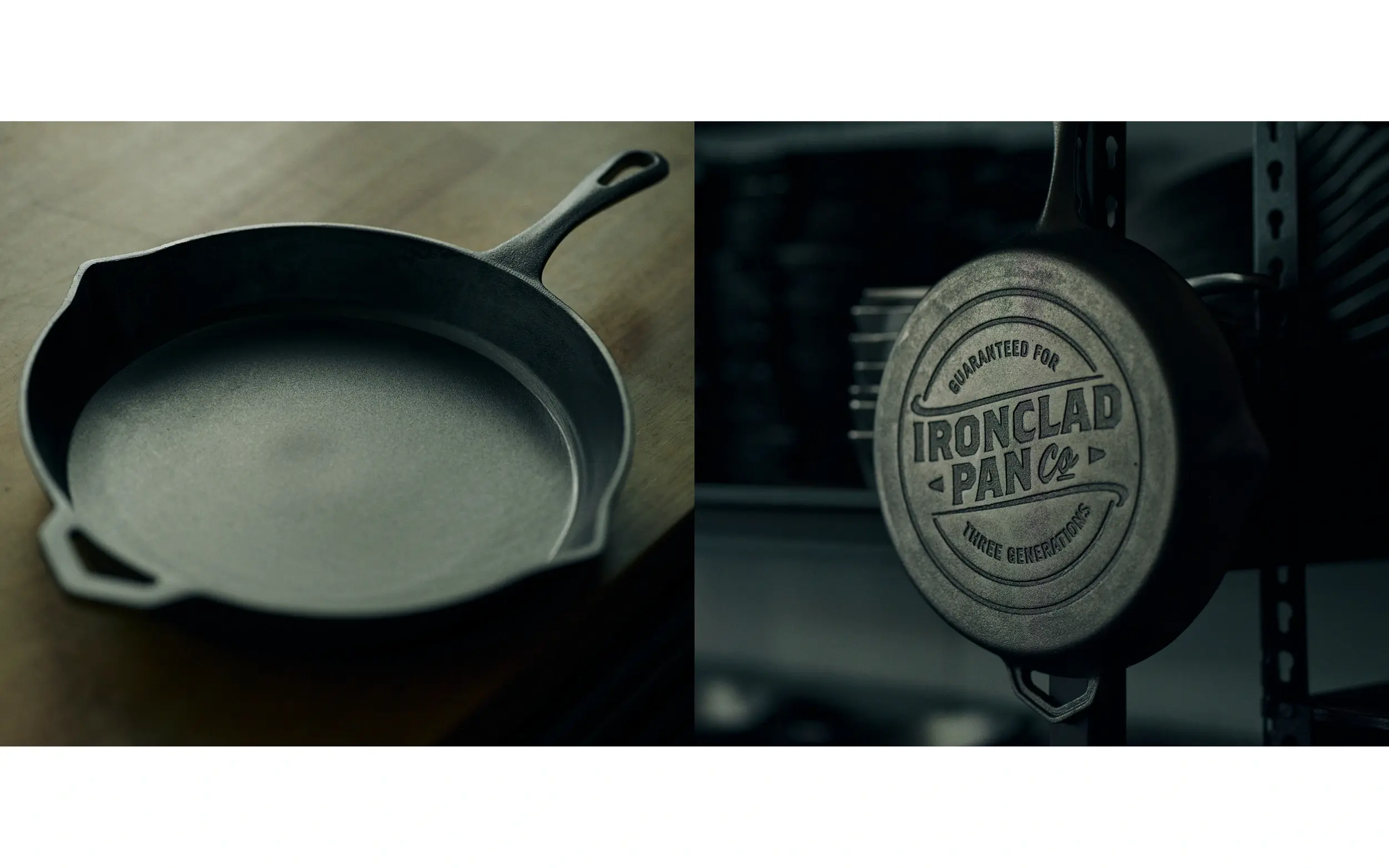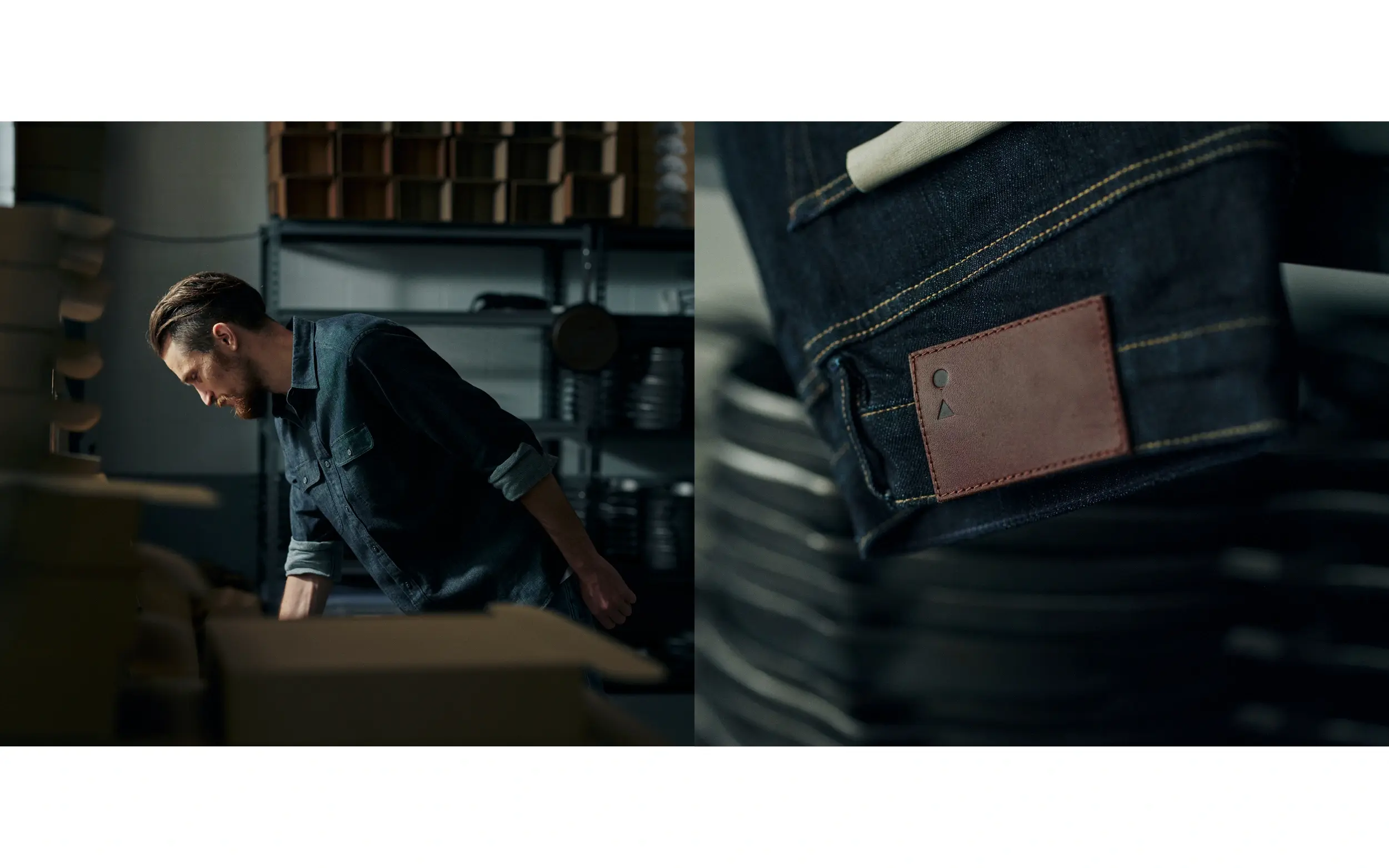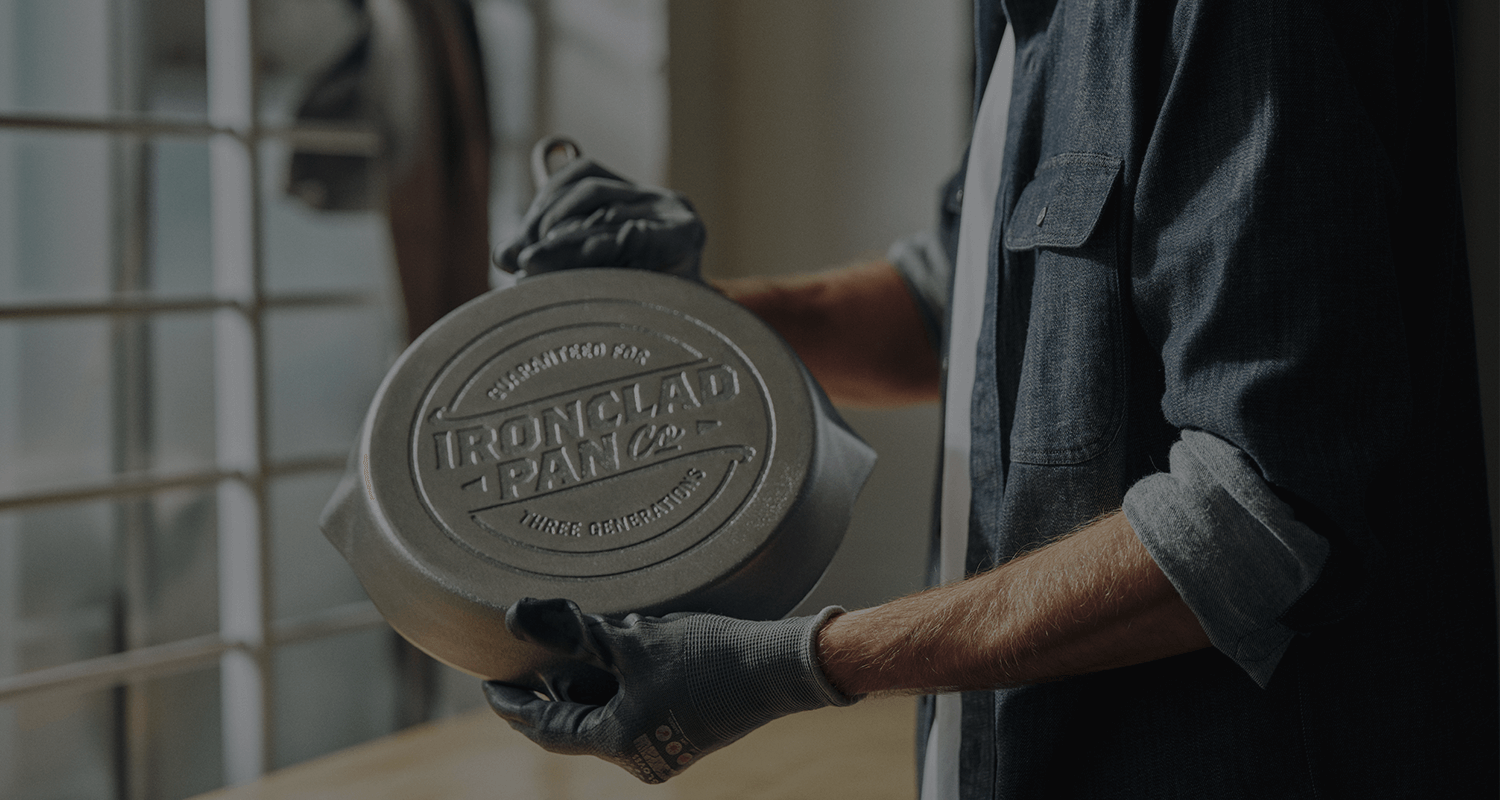Barkers’ Change Makers are those like-minded individuals who won’t accept the status quo, who ask more questions, who look beyond the norm towards fresh, unearthed ways of seeing and doing things – and that we can all learn from. Meet Kate and Joe from Ironclad: Proudly based in Aotearoa, the team at Ironclad Co. believe that to leave something behind, you need a product that will last, and a planet to leave it in.
Founded in 2019, the idea for Ironclad came from the kitchen after seeing the benefits of handed-down cast iron cookware. The goal was to create a sustainable product that would be a return to beautiful craft and traditional techniques. In an era of disposable stuff, the team wanted to create a product that would last for generations. We can definitely get behind that.

IRONCLAD Q&A
Tell us about how the first Ironclad Pan came about?
Kate: Like all of the best ideas, this one started in the kitchen. As I was cooking, we were talking about what kind of product would be fun to make - something that could be a part of people's daily lives and be good - genuinely good for you, and good for the planet. I was using a set of cast iron pans that were handed down to us, and then it hit me – let’s make one of these! Little did we know that nobody else was making cast iron cookware in Aotearoa. And little did we know how hard it would be to do. My background is in graphic design, so turning to product design was really exciting and challenging. We called on a colleague and friend Joe, who joined my husband, Levi, and I as co-founders to help make the vision in my head a sustainable and profitable business. Six months of research and product development later, and the first Legacy Pan was ready - the mother of all cookware.
We love the sentiment of handmade to be handed down, did this play a big part when starting your business?
Joe: Yep. The product had to pass the six-year old test. Would a six-year old approve of the product now, and if we made it, would the product and the planet still be around when they’re an adult and can pass it down through the next generation? Safe to say, it passed. But we also returned to the traditional hand-poured and hand-finished process of creating cast iron products. Not only does it make every single piece of cookware as unique as the recipes it will prepare, but it also avoids the waste that comes from mass production. Making things to order, things that you only need to buy once, isn’t so economically savvy. But it’s way better for the planet. And that’s important to us. Throw in a legally binding Three Generation Guarantee (a 100-year replacement guarantee), and it makes us and its new owner accountable for looking after the pan and the planet for generations to come.

Have you sensed a shift post-lockdown of people wanting to keep things that last longer?
Joe: That’s a really tough question to answer. I think consumerism has survived lockdown, which means convenience, price and availability will continue to govern our choices, rather than quality. But we are seeing more people question where, how and why products are made. Which encourages us not only to manufacture and buy locally, but more ethically and sustainably, too. Naturally, when you take these things into account, the quality and durability of the materials that we collectively use improves. And this results in a better end experience for the customer across every single category of purchasing. That ‘good for you, good for the planet’ mantra is one that we take into every aspect of our business. Our Three Generation Guarantee is evidence of that.
We’ve all heard about the negative impacts Teflon has on the environment (and our bodies)… Much like our commitments to sustainability, Ironclad is about longevity and being hard-wearing; can you tell us about the benefits of cast iron?
Kate: History proves that cast iron will last the distance - in fact it is one of the few materials that will only get better with more use and the right care. Teflon came along and ruined it for a whole generation or more, and now we know how toxic and inferior that Teflon is as cookware material, it would be great to get more cast iron back out there and educate people on how and why to cook with it. Because of its longevity it instantly becomes a sustainable choice - you aren’t ever going to need to replace it. Cast iron is the choice of many top chefs because it performs beautifully on and in the oven, or on the BBQ or open fire. The heat retention and distribution is superior. When cooking with iron there are no nasty chemicals or anything you don’t want near what you eat. In fact, it has been proven that you are able to absorb iron into your food from cooking with cast iron, and most of us benefit from more iron in our diets.
Joe: We have started to work with Auckland University to do further research into what we can do to help tackle the waste and negative environmental impact created by Teflon pans and their short lifespans. We are trying to find ways to recycle or repurpose those pans that currently just end up in landfill, leaching into the ground and causing soil (and other) issues for generations to come.

Congrats on your expansion into Australia, how has the business changed from when you started to now?
Joe: Everything has changed, but nothing has changed. The excitement and agility of being a small, family and friends business continues. We still believe in creative capital over financial capital, which makes international expansion challenging, but rewarding. Everything we sell in Australia will be made in Australia. Liv Lewis-Long recently joined us as our newly created Head of Marketing & Operations role; she’s helping us to organise the creativity into commercial success. Nic Bastian, Kate’s brother-in-law, is running the Australian show from Perth. So, the team and the warehouses are slightly bigger now. But when you’re hiring for superpowers that the business is missing, everyone has a role to play - even if that role doesn’t fit into a corporate job description. The notion that profitability and sustainability can co-exist isn’t virtuous. It’s our reality. And we’ll keep making locally-made kitchen and camp products for generations to come.





